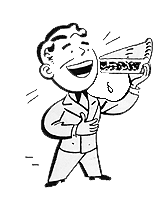»In which we mourn the hyphen
This piece by Charles McGrath on hyphens disappearing from the Shorter Oxford English Dictionary strikes me as ironic, since the New York Times is no bastion of punctilious punctuation (pardon my hypallage).
What’s getting the heave are most hyphens linking the halves of a compound noun. Some, like “ice cream,” “fig leaf,” “hobby horse” and “water bed,” have been fractured into two words, while many others, like “ bumblebee,” “crybaby” and “pigeonhole,” have been squeezed into one.That “ice cream” and “bumblebee” ever had hyphens to begin with suggests an excess of fussiness on the part of older lexicographers, and may explain some of Mr. Stevenson’s annoyance. The issue of proper hyphenation has always been vexing for the Brits, far more than it is for us, and occasioned perhaps the single crankiest article in Fowler’s “Dictionary of Modern English Usage,” first published in 1926.
I am re-reading "Murder Must Advertise" and have been keeping a short list of the unusual words that appear, formed entirely of ordinary words linked with hyphens: guard-book, bosom-pal, shirt-sleeves, lunch-hour, block-maker, — a handful more. Probably through repeated reading of novels such as Sayers's, with their splendid punctuation, I have a dogmatic approach towards my own punctuation, from commas to emdashes, exclamation marks to obelisks.

